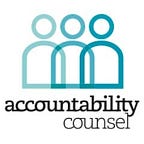Opinion: No sunshine — DFC limits transparency when it is needed most
By Stephanie Amoako, Accountability Counsel, for Devex
Just as the U.S. International Development Finance Corporation, or DFC, gets off the ground with the potential to chart a new era of U.S. overseas development, the institution has taken a worrying step backward.
Relying on legal technicalities, DFC quietly announced this month that it is exempt from the Sunshine Act, legislation aimed at promoting transparency and public participation in the U.S. government. Passed after the Watergate scandal, this act requires that “every portion of every meeting of an agency shall be open to public observation,” subject to some exceptions. DFC’s decision is a negative signal to those who value transparency and stakeholder engagement — and is of particular concern for communities impacted by DFC projects.
Not an agency?
Although DFC’s predecessor — the Overseas Private Investment Corporation, or OPIC — was subject to the Sunshine Act, DFC has wriggled out of the act’s requirements through a technicality about its definition of an “agency.” Under the act, an agency is defined as being headed by a body where the majority of the members are appointed for the purpose of leading the agency. Because the majority of DFC’s board members serve other functions in the government and were not appointed solely to lead DFC, DFC claims it is not an agency.
Even if DFC’s interpretation of the act were technically correct, it is alarming that it stands to have less transparency and public participation than its predecessor. Although DFC has additional tools and a larger investment cap, the work of the board — approving projects and policies and guiding the institution’s work — has arguably not changed from the OPIC days. What has changed with this move is that the board’s work will be subject to less public oversight.
Transparency and stakeholder engagement are key
As an institution investing U.S. taxpayer dollars in projects meant to benefit communities around the world, this move by DFC is particularly troubling because the public should be at the core of DFC decisions. In Accountability Counsel’s work with communities impacted by projects similar to those financed by DFC, we have seen time and again the negative consequences that arise when the tenets of transparency and public participation are not effectively in place.
A commitment to transparency and public participation includes publicizing comprehensive project information on the entire portfolio — prospective, approved, and closed projects — and giving stakeholders ample opportunities to provide input. It also requires robust consultations with project-affected communities to ensure that their voices and desires are reflected in projects and that their concerns are addressed throughout the project cycle. Otherwise, both the institution and affected communities stand to lose.
Opportunities for DFC to make a commitment
Regardless of whether it is technically an agency, DFC must show its commitment to transparency by providing meaningful opportunities for stakeholders to engage with the work of its board. There are two such opportunities for DFC to commit to transparency and stakeholder engagement now.
First, the legislation that established DFC, known as the BUILD Act, directs the board to develop — in consultation with stakeholders — “a publicly available policy with respect to consultations, hearings, and other forms of engagement in order to provide for meaningful public participation in the Board’s activities.” This key requirement has still not been fulfilled. The board should launch consultations for this policy as soon as possible to ensure that the policy includes best-practice modalities for transparency and public engagement.
Second, public participation is needed now in another important feature of DFC: its accountability office. Accountability offices are crucial tools for stakeholder engagement, offering communities the opportunity to raise grievances related to development finance institutions’ activities and providing ways to address those grievances through a compliance review investigation or a dispute resolution process.
For example, through a dispute resolution process facilitated by the International Finance Corporation’s accountability office — known as the Compliance Advisor Ombudsman — Mongolian herders were able to successfully negotiate a set of agreements with mining giant Rio Tinto and the Mongolian government to address negative impacts from an IFC-financed Rio Tinto mine. The agreements include provisions to restore the herders’ livelihoods, address challenges with access to water, and improve monitoring of the mine’s impacts.
Accountability offices are a common feature at DFIs — OPIC had one — and due to civil society advocacy, the BUILD Act mandates such an office for DFC. Now, public participation is needed in the development of that office. DFC’s bylaws state that the board will approve an implementing document outlining the accountability office’s operations. Before the board approves this implementing document and other policies related to the accountability office, public consultation is needed to ensure that the voices of communities and advocates who have experience with accountability offices are incorporated.
Developing an accountability office through a public consultation process is a common practice. For example, in the past couple of years, both the Chinese-led Asian Infrastructure Investment Bank and the Green Climate Fund have created their accountability offices through consultation with stakeholders. DFC’s board should follow suit and commit to a meaningful consultation process so that its office builds on the experience of OPIC’s accountability office, incorporates international best practice, and benefits from feedback from the people it is intended to serve.
Operating in the light
While DFC purports to be a DFI with high standards and a commitment to human rights, this step into the shadows sends the opposite message. Going forward, DFC should commit to full transparency and stakeholder engagement, instead of relying on legal technicalities to exempt itself from these requirements. This is the only way DFC can truly be the effective and responsible DFI that it aims to be.
Originally published at https://www.devex.com on April 28, 2020.
